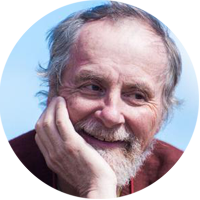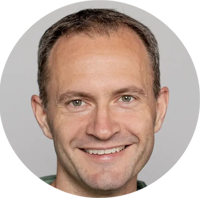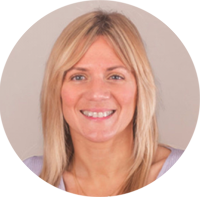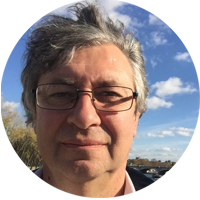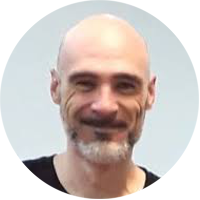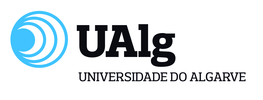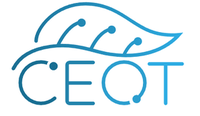Deep Learning for NIR Chemometrics |
 |
|---|
SENSORFINT (CA19145 “European Network for Assuring Food Integrity using Non-destructive Spectral Sensors”) and CEOT-UAlg organize a
one-day workshop at the University of Algarve, Faro (Portugal) on March 21st, 2024. This event is linked to the
WG3-NOVEL MATHEMATICAL ALGORITHMS AND METHODS FOR PROCESSING NDSS IN REAL TIME activities.
This workshop, dedicated to Deep Learning for NIR Chemometrics, will foster the discussion about
the application of Deep Learning algorithms for developing NIR chemometric tasks, discuss current trends in this field,
promote the exchange of ideas and spark future collaborations. The program includes 6 to 8 talks on the topics
Model architecture optimization
Applications of DL in Chemometrics
Data augmentation techniques for NIR
Model explainability
Data fusion using DL (NIR + Image + ?)
Deep Learning for Science (keynote)
After each talk there will be a short period for questions/open discussions and in the end of the workshop there will be a "focus session" around the main theme (compile suggestions for future research, establish publication guidelines, etc). There are a few slots for participants to deliver a short presentation (5 -10 minutes). If you wish to do so, please fill in the appropriate field in the registration form.
Organizing Committee
Dário Passos (CEOT, Univ. Algarve, PT) LOC
Rui Guerra (CEOT, Univ. Algarve, PT) LOC
Lola Pérez-Marín (ETSIAM, Univ. of Cordoba)
Marina Cocchi (UNIMORE, IT)
Tom Fearn (UCL, UK)
Jean-Michel Roger (INRAE, FR)
LOC staff
Ana Margarida Cavaco (CEOT, Univ. Algarve, PT)
Rosa Pires (CEOT, Univ. Algarve, PT)
António Brazio (CEOT, Univ. Algarve, PT)
Raquel Ceriz (CEOT, Univ. Algarve, PT)
Final program
Click on the title of the talk to open the corresponding video on youtube
Invited Speakers
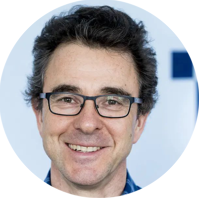 |
Achim Kohler obtained his PhD in theoretical physics in 1998. After his PhD he worked for almost 15 years at Nofima, The Norwegian Institute of Food Fisheries and Aquaculture Research in Norway, where he developed vibrational spectroscopy and related data analysis techniques for food quality and safety analysis. He is currently a professor in Physics at the faculty of Science and Technology at the Norwegian University of Life Sciences, in Ås, Norway. Prof. Kohler and his BioSpec group have been keen on understanding and modelling of scattering and absorption in vibrational spectroscopy for almost two decades. His group is highly multidisciplinary combining data science methods with approaches from physics for modelling and understanding of optical effects in biological materials. |
|---|
|
Harald Martens has a MSc (1971) in industrial biochemistry and Dr.techn. (1985) in chemometrics, both from the Norwegian University of Science and Technology (NTNU), Trondheim Norway. He has worked in method development and practical applications of multivariate calibration, diffuse spectroscopy, video compression, process monitoring, remote sensing and other disciplines, in universities and companies in Europe, USA, Africa and Asia. He is currently a retired professor from the Big Data Cybernetics at the Dept. of engineering cybernetics, NTNU and works part time for companies Idletechs AS and NatMat AS, focusing on integrative method development for industrial and environmental data interpretation. |
|
|---|
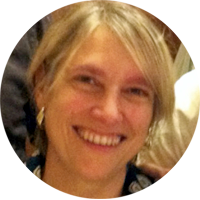 |
Marina Cocchi is at present Full Professor of Analytical Chemistry at University of Modena and Reggio Emilia. She got the PhD degree in Chemical Sciences in 1992 at the same University. She has published more than 100 papers in international journals and books (H-ind 31, 2993 cit., Scopus) covering a range of topics embracing Multivariate, Multi-way and Multiset methods; Data Fusion; 2D WT in Multivariate Images Analysis for fault detection and patern recognition; algorithms for features selection in Wavelet Domain; MSPC; Food Authenticity; Chemical fingerprinting by spectroscopy (MIR, NIR, NMR) and chromatography. She has been in the board of Italian Chemometrics Group from 2001 to 2015, acting as President in 2007-11. Since 2010 she has been member of the editorial board of Chemometrics and Intelligent Laboratory Systems. She has been Editor of the book Data Fusion: Methods and Applications, Data Handling in Science and Technology series, vol.31, Elsevier 2019. |
|---|
Kristian H. Liland is an Associate Professor at the Department of Mechanical engineering and technology management at the Norwegian University of Life Sciences. He received the Ph.D. degree in applied statistics in 2010 and his current research interests include multivariate statistics and machine learning. He is involved in a broad spectrum of projects ranging from theoretical to applied and often with an emphasis on scientific programming. |
|
|---|
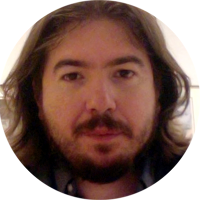 |
Federico Marini, is a Full Professor at the Chemistry Department of the Sapienza University of Rome. He received his MSc from Sapienza University of Rome in 2000 where he also completed his PhD in 2004. In 2006, he was awarded the Young Researcher Prize from Italian Chemical Society and in 2012 he won the Chemometrics and Intelligent Laboratory Systems Award for “his achievements in chemometrics”. He has been visiting researcher in various Universities (Copenhagen, Stellenbosch, Silesia, Lille) and research institutes (National Institute of Chemistry, Slovenia; Nofima, Norway; Irstea, France). His research activity is focused on all aspects of chemometrics, ranging from the application of existing methods to real world problems in different fields to the design and development of novel algorithms. He is member of the Editorial boards of Chemometrics and Intelligent Laboratory Systems, Analytica Chimica Acta, J. of Chemometrics, J. of NIR Spectroscopy, J. of Spectral Imaging and he serves as Associate Editor for Chemometrics in Wileys Encyclopedia of Analytical Chemistry. He is the past-coordinator of the Chemometric group of the Italian Chemical Society, and currently the vice-president of Italian NIR society and the coordinator of the Chemometric study group of EUCheMS. |
|---|
|
Lola Pérez-Marín is a Full Professor of the Faculty of Agriculture and Forestry Engineering (ETSIAM, University of Cordoba, Spain). PhD in Agriculture Engineering (UCO). She is a worldwide recognized expert in the used of NIRS sensors and new technologies applied to feed and food integrity, covering both fundamental and applied research. This research has resulted in well over 250 publications; with 143 of these being peer-reviewed papers in top quality journals (H index 32). She is currently the President-elect of ICNIRS (International Council on Near Infrared Spectroscopy) and President of its Educational Committee. Associate editor of the Journal of NIRS. Member of the International Scientific Advisory Board of the Institute for Global Food Security - Queens University (UK). Recipient of the Thomas Hirschfeld Award 2014 and G. Birth Award 2020. She is the Chair of SensorFINT Cost Action. |
|
|---|
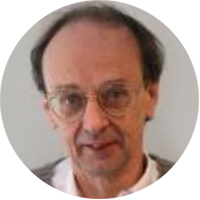 |
Tom Fearn is Emeritus Professor of Statistical Science in the Department of Statistical Science at UCL, London. His main research area is chemometrics, and in particular its applications to quantitative calibration and classification problems in NIR spectroscopy. He received the Hirschfeld award for contributions to NIRS in 2001 and is Immediate Past President of the International Council for Near Infrared Spectroscopy. |
|---|
| Jean-Michel Roger, developed chemometric methods for the design of embedded and hand held NIR sensors. He focused in research on the robustness problem. He has been strongly involved in many European projects dedicated to fruit quality assessment by NIR spectroscopy. In 2003, simultaneously with Prof. Tom Fearn, he proposed a new generic method called External Parameter Orthogonalization (EPO) which permits to eliminate specific spectral effects from the NIRS calibration and thus to solve certain problems of robustness. He is also involved in the design of portable or online spectrometers using filters technology. In this aim, he developed a method (CovSel) that allows to select wavelengths with regard to multiple responses. This method has been extensively applied to set up waste sorting machines. He is invested in the management of HelioSPIR, a French speaking society devoted to NIRS. He has created ChemHouse (https://chemproject.org/ChemHouse), a chemometrics research group. |
|
|---|
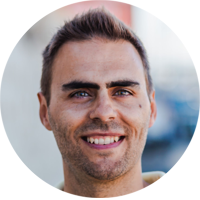 |
Hugo Penedones has a degree in Informatics and Computing Engineering from the Univ. of Porto (PT) and is a Machine Learning research engineer who has worked in computer vision, search, bioinformatics and reinforcement learning, at places such as the Idiap Research Institute and EPFL (both in Switzerland), Microsoft and Google DeepMind (London, UK). He has a particular interest in the applications of Deep Learning to fundamental sciences and engineering and he is the co-founder and CTO at Inductiva Research Labs. |
|---|
Dário Passos is a researcher at CEOT (University of Algarve, Faro) with an interest in the development of Deep Learning architectures for NIR spectroscopic analyis and Chemometric tasks. He graduated in Eng. Physics at the Univ. of Algarve (2003) and did a PhD in Astrophysics at the Insituto Superior Técnico (Lisbon, 2010). He has a background research in Solar Physics, Physics simulations and Data Analisys. Since 2018 he has been working in NIR spectroscopy of biological samples and Deep Learning for NIR Chemometrics. |
|
|---|
Registration(CLOSED)
Registration for this workshop is free and includes coffee-breaks, lunch and materials.
Registration period: 15 of January until 1of March (noon UTC).
The oficial list participants is:
- Jaime Martins (Univ. Algarve, PT)
- Jacob Kristensen Illán (Chemometric Brain, ES)
- Irina Torres Rodríguez (Univ. Cordoba, ES)
- José Antonio Entrenas de León (Univ. Cordoba, ES)
- Miguel Vega-Castellote (Univ. Cordoba, ES)
- Jesús Galán (Univ. Cordoba, ES)
- Yuqiao Ren (Univ. College Dublin, IE)
- Paolo Berzaghi (University of Padua, IT)
- Hugo Oliveira (Int. Iberian Nanotechnology Lab., PT)
- William Hasegawa (Calyxia, FR)
- Vilde Vraalstad (SINTEF Digital, NO)
- Martin Lagerholm (Perten (a PerkinElmer company), SE)
- Sara Chumillas Lidón (Chemometric Brain, ES)
- António C. Silva Ferreira (Univ. Católica Portuguesa, PT)
- Gonçalo Guedes (Univ. Católica Portuguesa, PT)
- David Palecek (Univ. Algarve, PT)
- Claudia Beleites (Chemometrix GmbH, DE)
- Áine Ní Fhuaráin (Univ. College Dublin, IE)
- Juan Garcia-Olmo (Univ. of Cordoba, ES)
- Cihang Yang (Univ. College Dublin, IE)
- José María Loché (International Iberian Nanotechnology Laboratory, PT)
- David Filip (vialtek.com, CZ)
- Maria Dulce Antunes (Univ. Algarve, PT)
- Dina Santos (CRIA, Univ. Algarve, PT)
- Ana Margarida Cavaco (Univ. Algarve, PT)
- Rosa Pires (Univ. Algarve, PT)
- António Brazio (Univ. Algarve, PT)
- Raquel Ceriz (Univ. Algarve, PT)
General Information
The workshop will take place at the Gambelas Campus of the University of Algarve, outside the city perimeter. To get to the campus you can use the usual platforms like Uber, Taxis (Auto Faro: +351 289822333, Rotaxis: +351 289895795, Central Taxis: +351 915191911), or by bus Faro-Gambelas: “Próximo bus”, Route 18 e Route 19.
If you want to check out some information about Faro's culture, hotels, etc take a look at our's visitor's guide.
The university campus is just 5 minutes away from the airport.
The workshop will take place in room -1.8 of FCT building number 8. If you arrive by bus, the entrance of building 8 is just accross the road of the 1st bus stop after entering the campus. When you enter the building, you turn left and go down the stairs. The room is on your right and will have some signs pointing into the room direction. Secretariate opens at 8:45 for registration.
Campus map:

Workshop photos
Click on the group photo to go to the photo galery
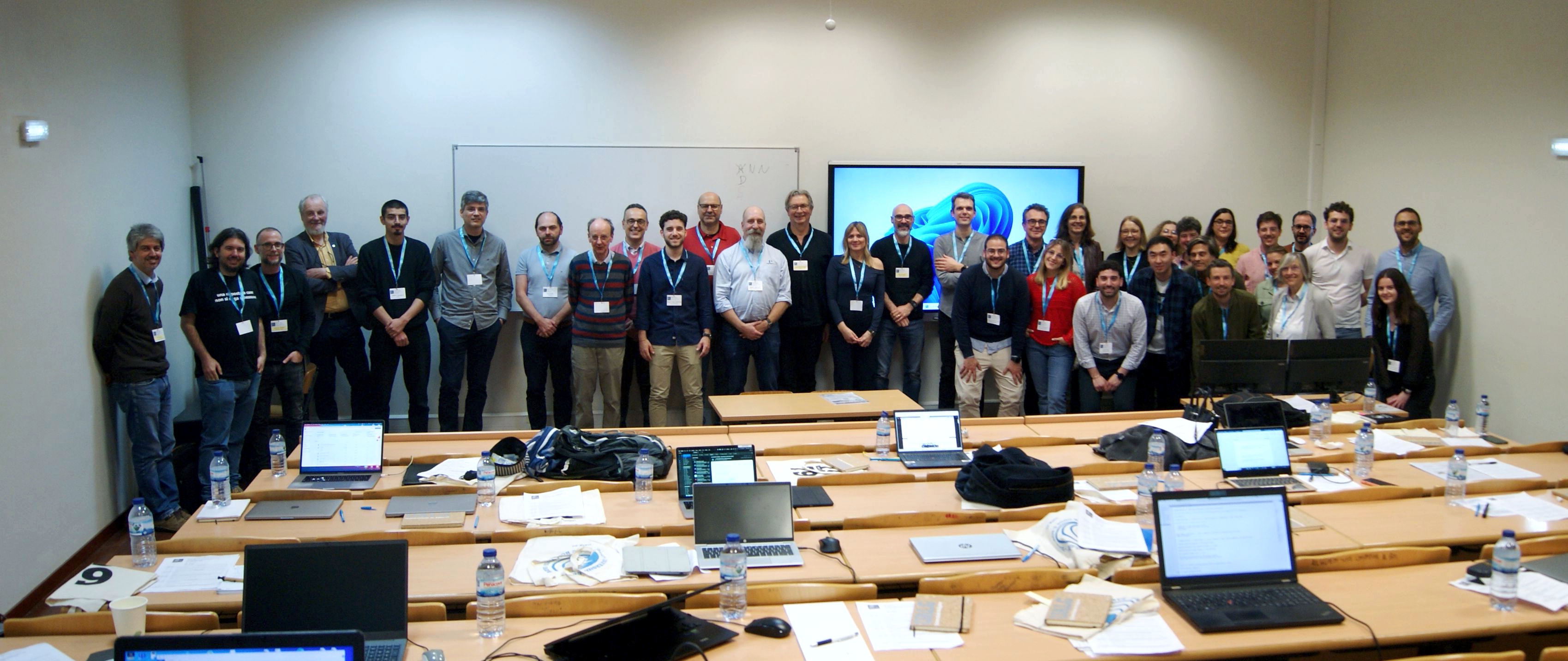
Additional sponsorships

